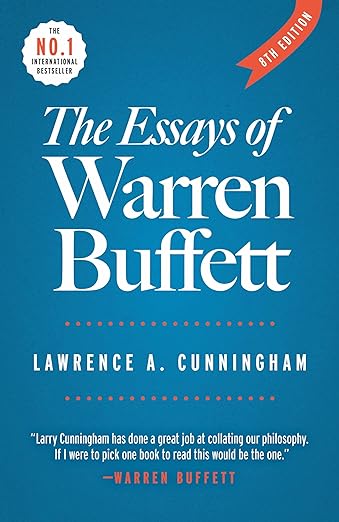Warren Buffett on prudence in acquisitions
In Warren Buffett’s annual letter to shareholders dated February 24, 2018, for FY2017, one line stands out in the section on acquisitions:
“Despite our recent drought of acquisitions, Charlie (Munger) and I believe that from time to time Berkshire will have opportunities to make very large purchases. In the meantime, we will stick with our simple guideline: The less the prudence with which others conduct their affairs, the greater the prudence with which we must conduct our own.”
Does this ring a bell?
This reminds us of what the legendary investor constantly said in various ways:
(1) “A climate of fear is your friend when investing; a euphoric world is your enemy.”
(2) “Be fearful when others are greedy, and be greedy when others are fearful.”
(3) “Fear is the foe of the faddist, but the friend of the fundamentalist.”
Sharing his thoughts on acquisitions, the Berkshire Hathaway chairman said that there are four building blocks that add value to Berkshire: (1) sizable stand-alone acquisitions; (2) bolt-on acquisitions that fit with businesses we already own; (3) internal sales growth and margin improvement at our many and varied businesses; and (4) investment earnings from our huge portfolio of stocks and bonds.
What qualities does Berkshire Hathaway seek in acquisitions?
“In our search for new stand-alone businesses, the key qualities we seek are durable competitive strengths; able and high-grade management; good returns on the net tangible assets required to operate the business; opportunities for internal growth at attractive returns; and, finally, a sensible purchase price,” said Warren Buffett. “That last requirement proved a barrier to virtually all deals we reviewed in 2017, as prices for decent, but far from spectacular, businesses hit an all-time high. Indeed, price seemed almost irrelevant to an army of optimistic purchasers.”
Commenting on the army of optimistic purchasers, Mr Buffett asked: “Why the purchasing frenzy? In part, it’s because the CEO job self-selects for “can-do” types. If Wall Street analysts or board members urge that brand of CEO to consider possible acquisitions, it’s a bit like telling your ripening teenager to be sure to have a normal sex life.
“Once a CEO hungers for a deal, he or she will never lack for forecasts that justify the purchase. Subordinates will be cheering, envisioning enlarged domains and the compensation levels that typically increase with corporate size. Investment bankers, smelling huge fees, will be applauding as well. (Don’t ask the barber whether you need a haircut.) If the historical performance of the target falls short of validating its acquisition, large “synergies” will be forecast. Spreadsheets never disappoint.”
“After all,” he added, “even a high-priced deal will usually boost per-share earnings if it is debt-financed. At Berkshire, in contrast, we evaluate acquisitions on an all-equity basis, knowing that our taste for overall debt is very low and that to assign a large portion of our debt to any individual business would generally be fallacious (leaving aside certain exceptions, such as debt dedicated to Clayton’s lending portfolio or to the fixed-asset commitments at our regulated utilities). We also never factor in, nor do we often find, synergies.”
Mr Buffett acknowledged that Berkshire Hathaway’s aversion to leverage has dampened its returns over the years. “But Charlie and I sleep well,” he said. “Both of us believe it is insane to risk what you have and need in order to obtain what you don’t need. We held this view 50 years ago when we each ran an investment partnership, funded by a few friends and relatives who trusted us. We also hold it today after a million or so “partners” have joined us at Berkshire.”
Then summing up his thoughts on acquisitions, he remarked: “Despite our recent drought of acquisitions, Charlie and I believe that from time to time Berkshire will have opportunities to make very large purchases. In the meantime, we will stick with our simple guideline: The less the prudence with which others conduct their affairs, the greater the prudence with which we must conduct our own.”
